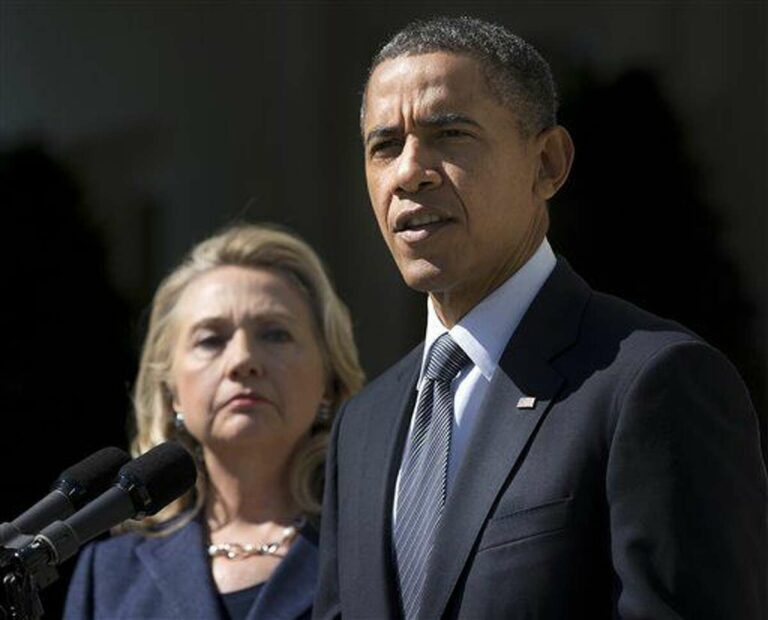Every President since Truman has used a nuclear first strike threat as leverage in U.S. foreign policy; it’s institutional insanity says Daniel Ellsberg on Reality Asserts Itself with Paul Jay. This is an episode of Reality Asserts Itself, produced November 12, 2018, with Paul Jay.
STORY TRANSCRIPT
PAUL JAY: Welcome back to Reality Asserts Itself. I’m Paul Jay, and this is The Real News Network.
We’re continuing our discussions with Daniel Ellsberg about his book The Doomsday Machine: The Confessions of a Nuclear War Planner. As I said in Part 1, I think this may be the most important work of modern history I’ve ever read because of what’s at stake; because it’s not just ancient history, the danger of nuclear war. It’s a current danger. And we’ll get to that as the series unfolds. Now joining us again is Daniel Ellsberg. Thanks for joining us again. The kind of conversations that were going on in the early 1960s, late 1950s it’s hard to understand it other than the word ‘insanity,’ but there was a weird, macabre rationality to this insanity. You’re involved in planning this nuclear war. What is the psychology of this kind of conversation?
DANIEL ELLSBERG: Well, this is not just a historical anomaly. It persists to the present. And I think not only in the U.S., but almost surely in Russia, as well, and has for a long time. And as a colleague of mine at Rand put it, nuclear deterrence may fail. What should we do if nuclear deterrence fails? What do you do with your weapons? Should you just use them, let’s say, against cities, or against Moscow, to no human effect whatever? Or should you try to limit damage to the United States to some extent by doing what you can to destroy their offensive power, their remaining offensive power? Well, haven’t their missiles all taken off? You know, they have empty silos. What are you to aim at if you have warning that the Soviets are on the way? And so what is there to aim at?
And this colleague pointed out, which was true at the time, said, the missiles won’t all have gotten off at the same time. Look at test events. They’re postponed all the time, and they have problems with things. There’ll be missiles left there. Isn’t it better to hit what you can, what is remaining? Hit those silos, which will include some missiles, and reduce the number of weapons that can be thrown at the U.S., even granted this tragedy, that the war has begun by perhaps a false alarm on their side, or a crazy, or a rogue, or something else. It’s happening.
That has determined the nature of our planning ever since. This was a conversation in, like, 1960 or so, more than half a century ago. But to this day, the planning is largely based on the notion of hitting what you can hit if your warning system reveals that there are enemy missiles on the way. And we have these elaborate warning systems which began against planes, the SAGE system and the other systems against bombers. I’m smiling because of course for many years it’s been the minutes available to you if your warning systems against missiles, ballistic missile early warning system, and now satellites, reveal that there are warheads coming your way. What do you do?
Now, from that day to this the idea has been you will preempt. And that has been the major task of our nuclear war. ICBMs in particular. To a lesser extent bombers, except that even they are regarded as you get them off the ground if the warning comes, and under a fail-safe system, meaning they shouldn’t go ahead unless they get a positive decision to go ahead, not merely to launch. In practice that could always have been short-circuited by a lower commander or a pilot determined to go ahead.
But what, then, do you do … Most of our weapons, the hundreds of billions of dollars that are spent, have been spent on this over the years, are, in theory, to reduce damage. Well, there’s two ways of looking at that. One is, as in the movie, a problem of prevailing, or winning. And as late as George H.W. Bush’s campaign … For instance, he was interviewed by Robert Scheer, and told him, of course, it’s possible to win by hitting their command and control, by hitting their missiles, by having any [inaudible]. He was involved- at that time it was, I think that was actually his vice-presidential campaign under Reagan. And they had this enormous buildup going on to this effect.
Now, the answer … To leap ahead here a bit, you can’t win a nuclear war. But can you prevail in the sense of inflicting more damage than they’ve inflicted on you? You might well say, well, what does that have to do with anything? But it is a criterion that they’ve used up till now. And second, actually having a surviving society capable to run its own affairs and power, and depriving the opponent, the Soviets, or the Russians, of that capability. And that remains an objective of our planning up till now, although it’s totally unfeasible. It can be made to look feasible only like calculations like the one in the movie, which indeed were made by a lot of people. In other words, people would say if we go first and we lose 40, 50 million people, how is that surviving? Well, if we go second, we could lose 100 million. And yes, the conversations were made, well, what’s the difference? And the answer, 50 million people. Is that nothing?
Now, if we’re to leap ahead to what we didn’t know then, it doesn’t make that difference, because the nuclear winter effect will have exactly the same effect-
PAUL JAY: It’s killing everybody.
DANIEL ELLSBERG: … whether you go first or second. Nearly everyone on earth will die. But if we go back to those earlier calculations, 50 million on a first strike versus 150 million or 100 million on a second strike, there, again, the idea was that we will survive that 50 million well. Even our values, meaning our democracy. Our democracy is very unlikely to survive one or two explosions on a city. When it comes to military control of events in the domestic economy I think our democracy is very unlikely to survive even a terrorist attack, very little. The idea of it surviving when nearly all of our major cities have been destroyed is absurd. Well, that’s- it’s so absurd that, you know, if you say five or ten, what will be left of us as a country? Possibly something; five or ten. But that’s not a Russian attack. That’s North Korea, perhaps, if they get ICBMs.
I’ve heard General Power- rather, my friend Bill Kauffman at Rand was pressing this point, actually, to General Power when he was commander of SAC, Strategic Air Command. And SAC said- Power said- why are you so concerned about saving these lives? Killing them is what we’re up to doing. He says, after all, if at the end of the war there’s two Americans and one Russian, we win. And Kauffman was rather sardonic, made the mistake of saying, well, you’d better hope that one of them is a man and one is a woman. At which point Power stomped out of the room and took his, his staff with him in anger.
But actually, Senator Russell of the Armed Services Committee, LBJ’s mentor throughout his life, said much the same, as did others. And that’s the only way you can make sense- well, you can’t make sense, in other words- out of the idea of prevailing, or winning. Now, some would say it’s not two Americans and one Russian; it’s two submarines and one Russian submarine. Or no submarine, our having some missiles left. Make a calculation of who will have prevailing power. The answer is, with nuclear winter, it’s not going to make any difference by any calculation after a year. We’ll get to that. Everyone is going to starve. But even without considering that, the idea that in a devastated Eurasian Northern hemisphere- even if there is a Southern hemisphere left- the idea that it matters which one has more nuclear weapons left with no command and control on either side is insane.
But it is a way of selling weapons to do this, and selling very expensive command and control systems, and whatnot. They really do insanely move ahead on this way, and as I say, in the context that somebody has put two boys in a room full of gasoline up to their knees, one saying that he has more matches than the other one. It makes as much sense as that.
PAUL JAY: In the war plan, the trigger for nuclear war was certainly not just some sign that missiles are on their way. It could be, if I remember correctly, if three American battalions get in a direct confrontation with Russian- or if there’s a Soviet ground attack into Western Europe, it would trigger an American nuclear response. All-out nuclear response. Which the American people had no idea at the time, that there’s other reasons why first strike might be launched.
DANIEL ELLSBERG: The major purpose of nuclear weapons, from almost the time we began planning in the late ’40s, was against Russians, against Soviets, in the event of a ground conflict in Europe. And that implied- that was a time when we had a monopoly of nuclear weapons, until 1949. By ’49 and ’50, ’51, we had hundreds of nuclear weapons targeted on Soviet cities, which would have been only a first strike. There’s no possibility of a second strike.
Then with NATO, from the beginning of NATO, its assurance to our allies that there would be no war was based on the notion that if there was, we would initiate nuclear war on Soviets even though they could respond. They were now a nuclear weapon state. If they did, that would assure the annihilation of Europe. So it was a suicide pact, as far as Europe was concerned. At the first they weren’t able to attack us, so we were able to say, we’ll do it. You can count on our doing it, and the Russians can count on our doing it, even though you’re destroyed. Even though our allies are destroyed. As Senator Lindsey Graham was saying about a war with North Korea, which is a nuclear weapon state in the last year, remember, the casualties will be terrible, but they’ll all be over there. They will not be Americans. Because the North Koreans at that time, or still, had no intercontinental ballistic missiles to reach the U.S. So they’ll only be Asians. Our allies. South Korea will be annihilated. Japan will be devastated. But it won’t be Americans. So they can be sure, then- so he was actually recommending that the president actually be prepared, and/or carry out a strike. If the North Koreans would not cease to be a nuclear state, if they would not give up their deterrent nuclear capability, whatever, Graham has felt, a senior Republican, that we should attack them at the cost of our allies.
PAUL JAY: John Bolton says similar things.
DANIEL ELLSBERG: It was plausible enough at the time to NATO to feel, well, that they won’t do that, because the Soviets will believe we would do that. And actually, we might have. I find Eisenhower’s planning, and the planning that succeeded after that, it would have been hard to avoid it, to stop it, the way nuclear weapons were so enmeshed in our NATO planning and our SAC planning, that it would have happened at whatever cost.
PAUL JAY: In Daniel Ellsberg’s book The Doomsday Machine, he writes:
“In his State of the Union address in 1984,297, Ronald Reagan advanced the resounding and profoundly true proposition that ‘A nuclear war cannot be won and must never be fought.’ What he did not say, and like every other president, never acted as if he meant, was, ‘A nuclear war must never be threatened, or prepared for.’ Preparation for preemption or for carrying out threats of first use or first strike remains the essence of the ‘modernization’ program for strategic nuclear weapons for the last seventy years—prospectively being extended by Presidents Obama and Trump to one hundred years—that has continuously benefited our military-industrial-congressional complex.
“The felt political need to profess, at least, to believe that the ability to make and carry out nuclear threats is essential to U.S. national security and to our leadership in our alliances is why every single president has refused to make a formal ‘no-first-use’ (NFU) commitment. They have rejected it when it has been urged, repeatedly, by China—which announced its own NFU commitment at the time of its first test in 1964, as did India at its second test298 in 1998—and by the Soviet Union from 1982 until 1993.
“Many shuddered at the implication that Donald Trump, presiding over a trillion-dollar makeover of our entire nuclear arsenal that he inherited as a program from Barack Obama, might feel that he could actually use some of these weapons. But of course, he planned to use them, as he had clearly implied to Chris Matthews. He wants to use them like every other president: in ‘negotiation,’ in threats, in exploiting uncertainty in our opponents as to whether he might launch “a nuke” in a stalemated armed conflict or a crisis, or perhaps in pique at what he experienced as humiliating provocation. Whether he would carry out such threats in any given circumstances, or otherwise use them in attacks, remains as uncertain, and as possible, as it has been for every other president in the nuclear era.
“What seems to me beyond question is that any social system (not only ours) that has created and maintained a Doomsday Machine and has put a trigger to it, including first use of nuclear weapons, in the hands of one human being—anyone, not just this man, still worse in the hands of an unknown number of persons—is in core aspects mad. Ours is such a system. We are in the grip of institutionalized madness.
“To recover fundamental moral bearings, as well as to move urgently toward preserving human civilization and other life on this planet, the U.S. government—including the president, officials, and Congress, pressed by a popular movement and preferably backed by binding congressional legislation—should announce decisively that there is no ‘nuclear first-use option’ on the bargaining table in our dealings with Russia, Iran, China, North Korea, or any other nation, because we as a people and our government recognize that nuclear first use would be a murderous, criminal action, not a legitimate ‘option’ for the United States, Russia, or for any other country under any circumstances.”
PAUL JAY: Please join us for the next part of our series of interviews with Daniel Ellsberg on Reality Asserts Itself.






